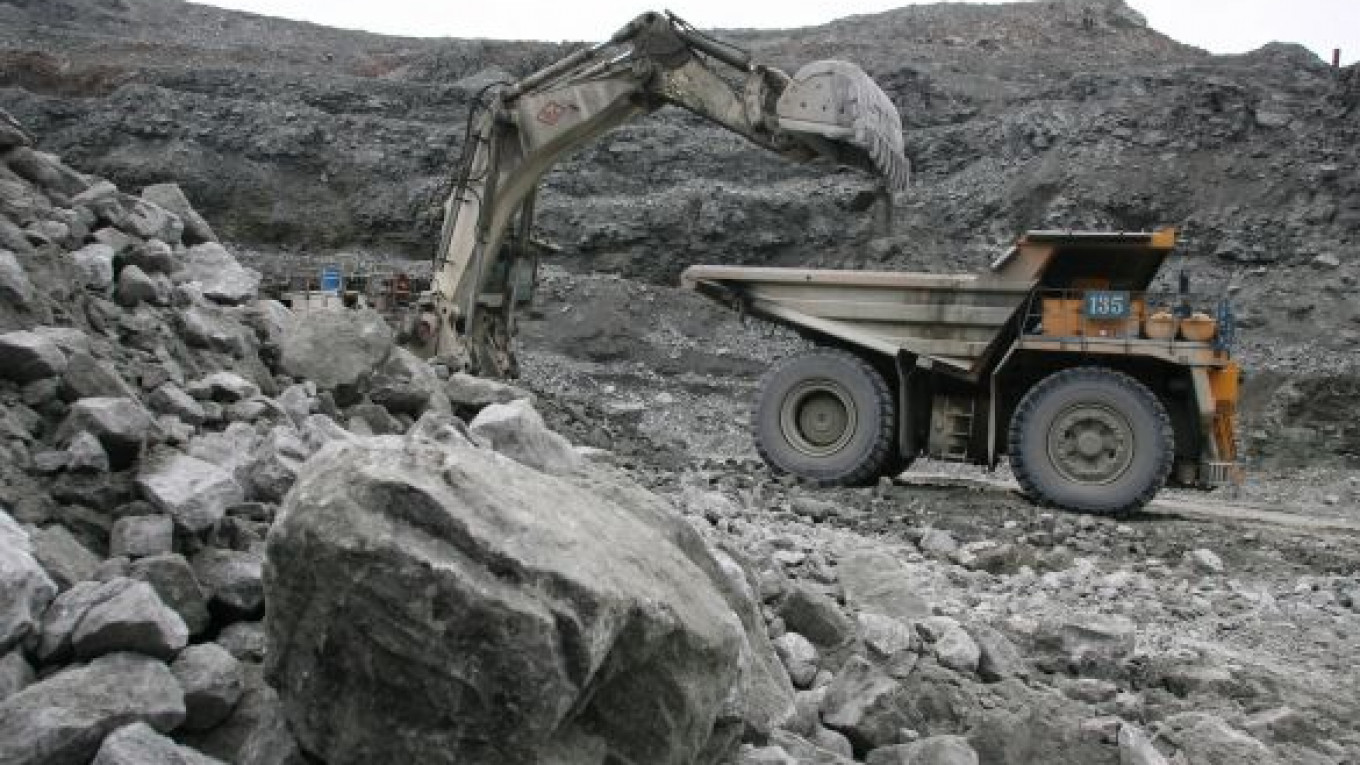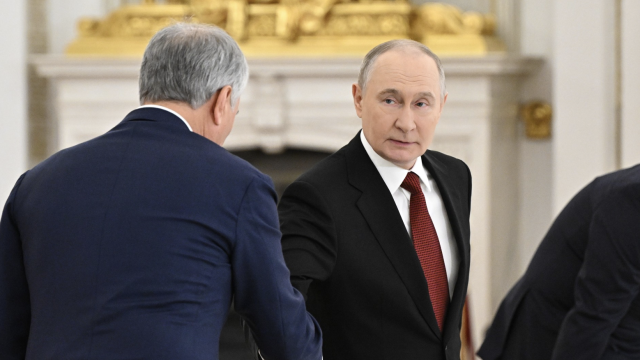The government has agreed to spend more time getting bids for its stake in fertilizer producer Apatit in an effort to rescue what is potentially one of the largest privatization deals this year.
The sale fell through last week when just one suitor made a bid for the stake, which could be worth 25 billion rubles ($780 million).
In response, the government pushed the bidding deadline to Sept. 15, said Alexei Uvarov, chief of the Economic Development Ministry department that oversees the deal, Vedomosti reported Monday.
That will allow one more potential bidder, Acron, to participate in the auction.
Acron spokeswoman Yelena Kochubei said Monday that the company was interested in vying for the asset. Acron said earlier that it was willing to shell out 25 billion rubles for the stake.
With just one bid submitted, the government would have had to cancel the bidding.
According to the Monday report of the government decision, the companies that didn't bid last week could do so until the new deadline.
Acron was unable to gain antitrust approval in time to bid before the auction's initial deadline last week, but it expects to do so later this summer.
Acron beneficiary Vyacheslav Kantor has dual citizenship, which subjected the company to additional screening by the government's commission on foreign investment in strategic industries, the Vedomosti report said.
UBS analyst Kirill Tachennikov said the government may have pushed back the bidding deadline with an eye toward accommodating the late-coming contender.
"I think it was done chiefly for Acron," he said.
The bidders that have the government's permission to compete for the Apatit stake include London-listed Phosagro, the world's second-largest phosphate producer, after U.S.-based Mosaic Company.
The others are another fertilizer producer, UralChem, which made the only bid last week, and a bank, Trust.
Phosagro, which already owns just less than half of Apatit, declined to bid, saying the terms were unclear. Trust didn't explain why it didn't make a move.
Phosagro chief Maxim Volkov said Monday that he couldn't elaborate on the terms because of a confidentiality agreement with the auction organizer, French investment bank BNP Paribas.
He said only that Phosagro proposed to change the conditions and arrange for a new auction.
Speaking on a conference call, Volkov also expressed doubts that the government will raise as much as 25 billion rubles for the stake.
"I don't believe [the bidders] would go that far," he said.
He refused to name the best price his company would pay for the asset.
"If you want to win, never name the maximum price," he said. "Or it looks like a circus."
Phosagro predicted that high grain prices would continue to drive demand as it reported a 29 percent year-on-year rise in first-quarter net income.
Its net profit rose to $266 million in the January-March period, the company said Monday, Reuters reported.
Sales climbed to $856 million, while adjusted EBITDA edged up to $313 million.
The fertilizer industry has been a hot sector for investors over the past year, as the world's rising population and unpredictable weather patterns have piled pressure on food supplies.
Phosagro, which raised $538 million in a London initial public offering in 2011, plans to increase fertilizer production and sales in 2012 and said it believes the market will remain stable.
During the first quarter, Russia, Europe, the United States and Brazil showed very strong demand, while the Indian market was challenging, Phosagro said.
Indian demand is recovering, however, and Phosagro does not expect any serious slowdowns this year. Record planting of acreage and historically high prices for key grains will drive demand for fertilizers, the company added.
A Message from The Moscow Times:
Dear readers,
We are facing unprecedented challenges. Russia's Prosecutor General's Office has designated The Moscow Times as an "undesirable" organization, criminalizing our work and putting our staff at risk of prosecution. This follows our earlier unjust labeling as a "foreign agent."
These actions are direct attempts to silence independent journalism in Russia. The authorities claim our work "discredits the decisions of the Russian leadership." We see things differently: we strive to provide accurate, unbiased reporting on Russia.
We, the journalists of The Moscow Times, refuse to be silenced. But to continue our work, we need your help.
Your support, no matter how small, makes a world of difference. If you can, please support us monthly starting from just $2. It's quick to set up, and every contribution makes a significant impact.
By supporting The Moscow Times, you're defending open, independent journalism in the face of repression. Thank you for standing with us.
Remind me later.






